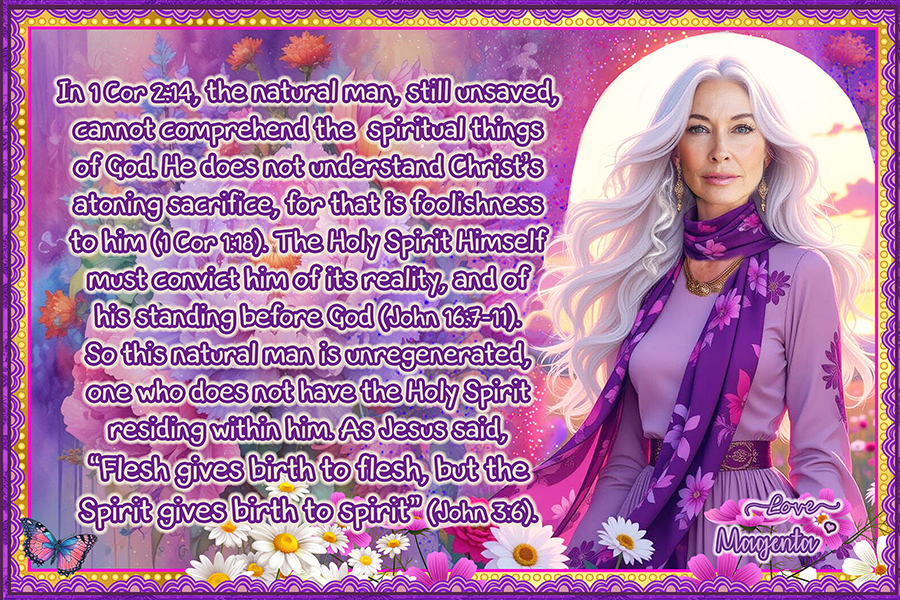Okay, now that you are specific, I agree that there is "tension" between Deut. 29:4 & 9,
and I await your explanation involving Heb. 3:12-19--and I no longer count you as #2 down.
However, you are on probation regarding the pejorative ad hominems.
So, you are saying that the Deut passage itself wasn't specific enough for you!? Do you have a special translation of the bible that underlines or highlights what the translators consider to be "specific"? Why is it that I noticed the "tension" between those two verses, yet you did not? One is led to wonder how many other obvious "anomalies" or "oddities" or "irregularities" you miss in other passages...But let's explore this "tension" for a few moments, which we'll do by
exegeting the passage.
First, re Heb 3:12-19, I simply cited that passage for
quick historical context purposes
. So, what do you need explained to you about Israel's unfaithful behavior in the Wilderness?
Now on to Deut! The first thing we notice about Moses' remarks in Deut 29: 4 is that he didn't attribute Israel's lack of faithfulness/obedience to their unwillingness to obey, even though such unwillingness permeated the psyche of most of them. But to Moses' mind,
this wasn't the primary cause of their spiritual problem. Rather, God sovereignly withheld grace from them!
The second thing we should not miss are the two kinds of hearing or sight taught in the passage. In v. 3, Israel did see with their
natural/physical eyes the great miracles, spectacular signs and awesome wonders the Lord performed in Egypt on their behalf. But the next verse starts with a
"but" -- a clear indication that what will follow will be different from, distinct from or in contrast with what has been stated previously. In spite of all their natural eyes beheld and their natural ears heard in Egypt (and even later in the Wilderness),
it never resonated down to their heart -- the heart which is the locus of personality! This text offers a classic example of people having superficial head knowledge of God and his truth but the people lacked
good soil (heart) so that they could only bear the fruit of their wickedness. It's impossible to get good fruit from bad soil! A great companion passage to this Deut text is Rom 1. This is why mankind in Rom 1, even though they "understood and clearly saw" [with their natural eyes] the attributes of God through what He made
, they became futile in their thinking and their
foolish hearts were darkened because the light of that Natural Revelation never penetrated their
darkness, for their hearts became darkened (Rom 1:18-23)
. In the same way Light came into this DARK world but the Darkness did not comprehend it (Jn 1:5). (See also Mat 13:11-15 wherein the unregenerate see and hear naturally but cannot see and hear spiritually because they themselves are Darkness, cf. Eph 5:8 and their minds have been blinded by the evil one, cf. 2Cor 4:4, and even the Lord blinds the eyes of non-elect, cf. Jn 12:39-40)
The third thing we learn is that ultimately
spiritual understanding comes from God himself and is graciously imparted to his chosen people
inwardly by the Holy Spirit (Ps 119:18; Prov 9:10; Job 28:8; Isa 42:6-7; Lk 18:34; 24:45; Act 8:30-31; 1Cor 2:10; 2Cor 4:6; 1Jn 5:20; Truth learned by external manifestations thereof, such as the examples expressed above, will at best result in superficial understanding. This is why the external invitations of the gospel alone can never save anyone. The gospel message of life needs to be applied inwardly to the heart by the Spirit of Truth so that spiritual truth can actually be understood, seen and heard by, with and through spiritual eyes and ears and sink down into the heart that has been made good by the Spirit (Lk 14:16-24).
Fourthly, despite objections to what many think the "heart" means in scipture, the heart means much more than the physical organ that pumps blood or the facutly of emotions, passions or feelings; for this passage teaches that understanding also resides in the human heart, since the faculty of intellect or mind is also seated in the heart. Deut 29:4 doesn't merely say that God hasn't given understanding to His people's minds but rather to their hearts; for all four faculties are involved in every decision we make!
Fifthly, Moses obviously did not shy away from the tension between the twin truths of God's supreme sovereignty and man's moral/spiritual responsibility. He did not consider these truths to be mutually exclusive to each other but actually complementary to each other -- even though we cannot fully understand how God rules this world by working his perfect will into his moral creatures to accomplish his purposes. To Moses' mind, God does not exist so that man can work his will into Him and accomplish our plan and purposes; but rather we exist to glorify God in all that we think, say and do and we can only do this by God actively and powerfully working his holy, good, righteous and perfect will into his.
Sixthly, this passage in Deut cleary demolishes various man-made universal concepts or constructs that God's love is unconditional, that it is quantitatively eternal because He has always loved mankind in the distributive sense, and that God is not willing that any human being should perish, that all the commands in the bible can only logically infer spiritual ability etc. Yet, all of these, and more, are false propositions! If Moses believed any of this, he could never have written what he did in vv. 4 and 9. He would never have created the tension he did between these two verses. He would have simply laid all the blame on Hebrews' failings on their lack of willingness. But Moses wrote what he did because he understood the
helplessness of his people! Did not God appoint Moses to play a key role in His
rescue mission of his chosen people from Egypt? Are people who are self-sufficient ever in need of emergency resuce help?
Lastly, the grace that God withheld from the Hebrews and that ultimately accounted for their rebellious, hostile spirit toward their Redeemer would have been effectual if He had granted that grace to them. We can know this in two ways: First, by the outcome of the people's exerience in the Wilderness when they were operating with only their natural eyes and ears and
no spiritual understanding. This kind of condition is
spiritually fatal, since [true, saving] knowledge of the Holy One is understanding (Prov 9:10)! Therefore, the Hebews had no such saving knowledge of God.
And the second way we can know that God's grace would have been effectual is because nothing changed with the Hebrews after they crossed the Jordan into the Land of Canaan. In fact, Joshua fully understood Moses and was on the same page with him; for Joshua told the people, while they were still on the wilderness side of the river, that they
would not be able to serve the Lord (Josh 24:19). But clearly Moses in Deut 29:4 implied that the Hebrews would have had spiritual eyes to see and ears to hear and an understanding heart if God had gracously granted those things to them. If this weren't case, then what Moses said in v.4 makes no sense; for whether the people were left in their current state or rescued from it by God's grace, they would have still rebelled. Either way, the outcome would have been identical, which is absurd; for no one can thwart God's plans or purposes (Job 42:2).
In closing, this is a rather unique passage in scritpure because it brings two different and seemingly contradictory concepts together, as mentioned earlier. And at the same time, the Word of God does not shy away from or downplay man's role of moral/spiritual duty to God in spite of his fatal spiritual condition.


